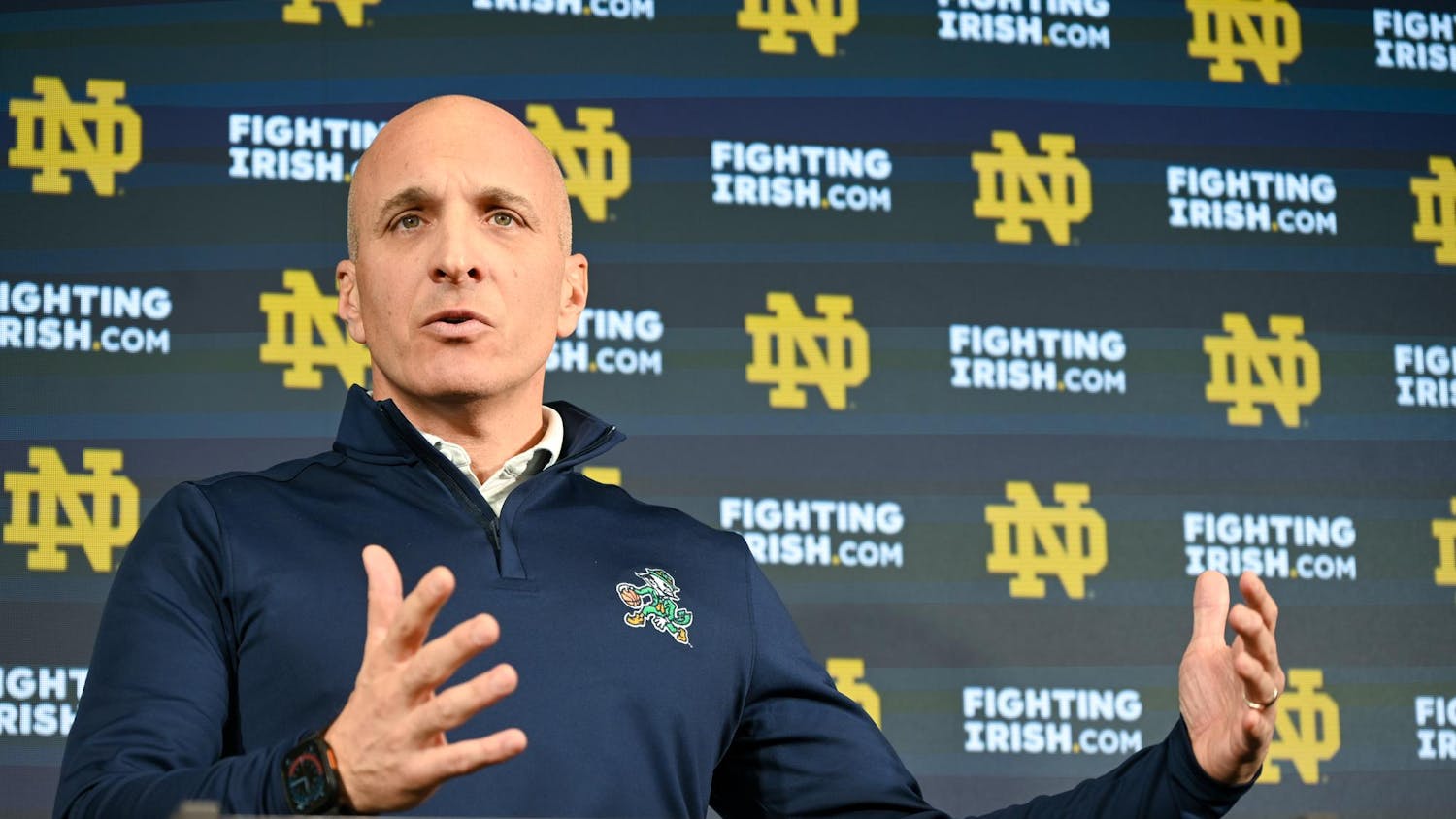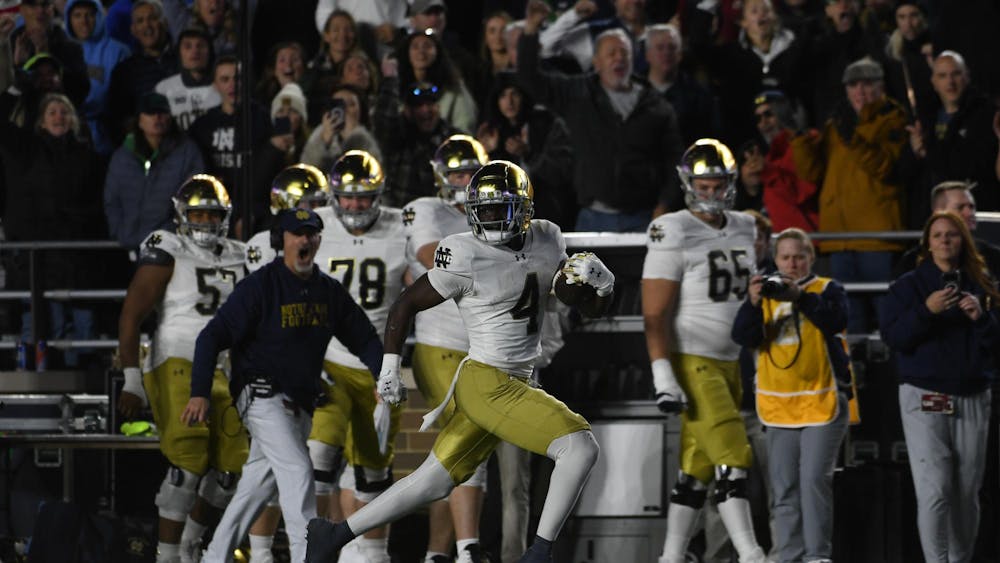Well before Notre Dame’s shocking fourth-quarter performance against the Wisconsin Badgers in Soldier Field — one that already typifies the lingering, opportune, perhaps even fortuitous scoring trends of this 2021 team — thousands of Fighting Irish students barreled down Highways 80 and 90 in overcrowded caravans to bask in the bliss of college football on one of America’s biggest stages. The conclusion of Friday classes brought troves of deep-pocketed football fanatics on the doorstep of Chicago’s coliseum. A primary reason for this mass migration a day early? The 11:00 a.m. CST game start time.
The incentive for students to arrive in the Windy City a day early was so they could enjoy the morning. It was spurred on by ESPN and Barstool Sports who benefitted immensely from it. With a predominance of the targeted market base settling into the city well before College GameDay and Barstool Sports coverage began, the networks reaped the benefits of campus-wide hype within two of the most devoted football communities in the Midwest — all located in one city.
The early arrival of students benefitted the Chicago economy as well. Fans not based in Chicagoland were pressured to seek a hotel room on Friday night in anticipation of early morning tailgating and activities outside of Soldier Field.
And most definitely, the 11:00 AM start benefitted FOX Sports. With exclusive rights to set its programming schedule, FOX maximized its ratings by wedging the Shamrock Series alongside atrocious matchups across the FBS, conveniently following its Big Noon Kickoff show.
As business entities, all of the aforementioned parties saw the profit potential of the Shamrock Series to the fullest. Why didn’t Notre Dame?
Before I even begin to criticize my beloved University, I want to commend it for supplying tickets a week before the Shamrock Series. If profit-hungry students with little affinity for football landed their lottery tickets with more time to spare, penetrating third-party resale markets would have been inevitable. The small window of opportunity protected the student block against this kind of dissolution. Students don’t want to cheer with strangers. They want to rip their shirts off alongside friends and classmates, exactly as many of them did this weekend.
But in keeping the best interest of students in mind, why not stay consistent? The University frequently bundles its home football tickets with parking passes and tailgating access, and third-party Shamrock Series bundles with a hotel and transportation sold out almost immediately. Internally offering a limited number of student ticket packages that included transportation to and from Soldier Field and a nearby hotel reservation should not have been out of the question. At the very least, placing alumni on a waitlist for a discounted hotel room, offering a block of rooms to traveling students as add-ons and supplying alumni with any residual spaces would have protected the University from a net loss.
Countless students overpacked their cars, crammed into single-bed hotel rooms and overfilled their $100 Uber rides this weekend in an effort to “improvise” and cut costs throughout their Chicago experience. Notre Dame is responsible for neither Chicago prices nor simple off-campus safety measures like wearing seatbelts, but it is impossible to dismiss a student ticket package with affordable housing and transportation included — one that works in concert with student safety and comfort — as a risky investment for the University. Especially considering the 11:00 a.m. start time, wherein the University could guarantee that students would feel inclined to stay one, if not two, nights in the Windy City, a bundled or add-on option feels painfully prudent. This level of excess demand should have been anticipated and lost profit was diverted to Chicago businesses as a result.
It goes without saying that students assumed the financial and personal risks of venturing to Chicago regardless of how involved the University is. But without any of the alumni options directly provided to students, the question remains: why didn’t the University connect students with Chicago transportation and housing options in the same way that they connect alumni with parking passes and Morris Inn offers on home game weekends?
Read More
Trending








